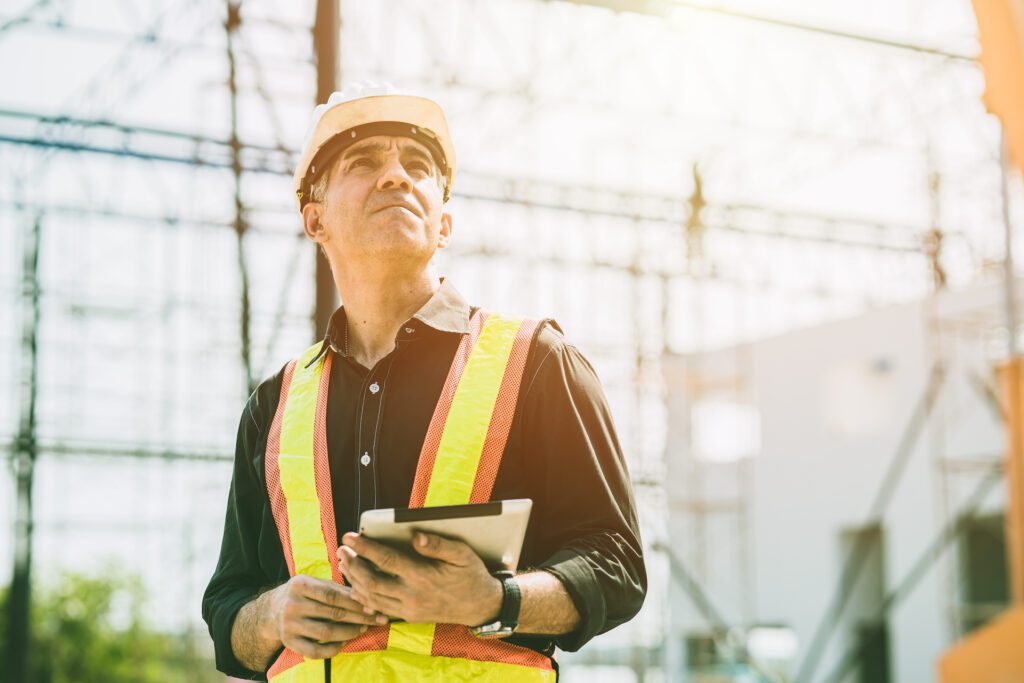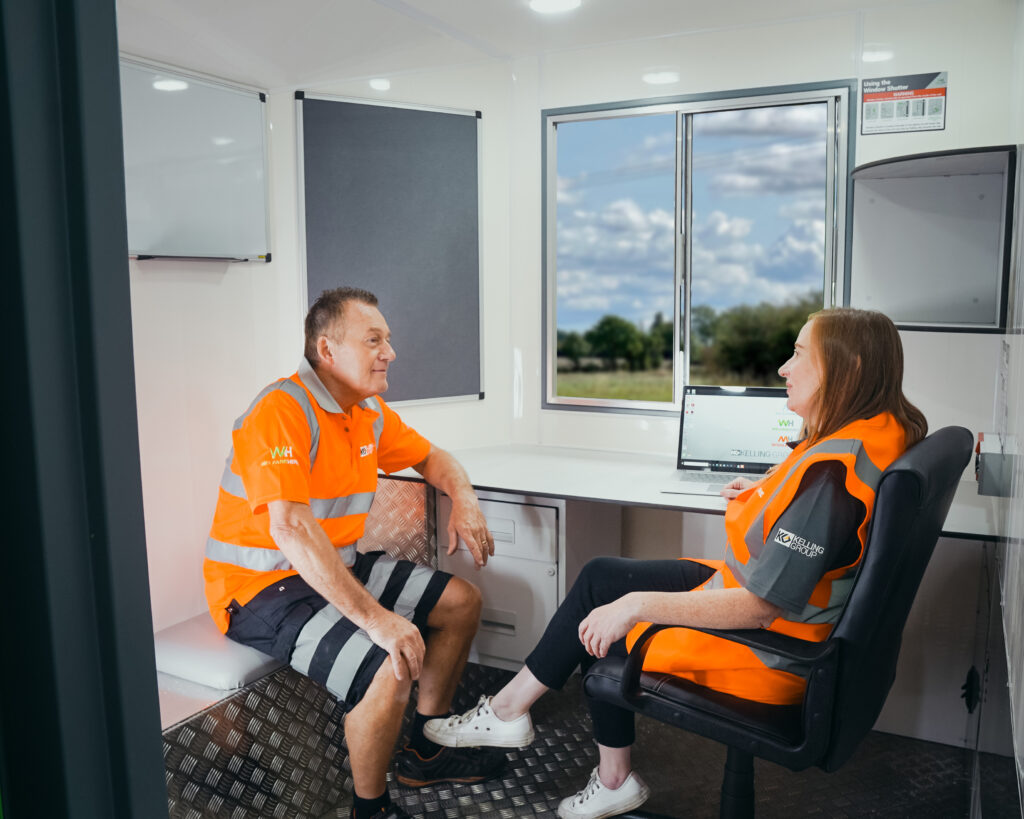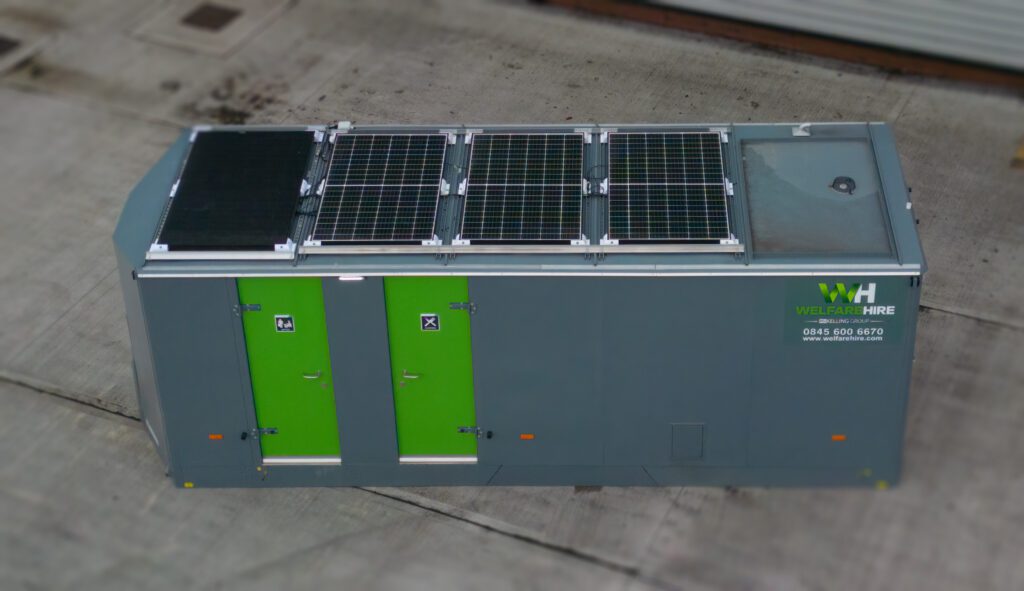Is Mental Health in the Construction Industry Improving?
Blog-November 10, 2023
In 2019, the construction industry was declared to be suffering from a ‘silent epidemic’ of mental health problems. Men working in the industry were 3x more likely to commit suicide than the average population¹, while 64% of employees said they wanted better mental health support from their boss².
Since then, there has been a huge effort to raise awareness and create more open on-site cultures. And in this article, we explore how the most recent research suggests leaders can keep moving things forward – and why mobile welfare units could be a key part of the answer.

Construction workers are still suffering
Mental health is still a major problem within construction. A survey conducted earlier this year found that 73% of UK builders experience mental health problems, such as anxiety or depression, every month, while nearly half (45%) experience symptoms on a weekly basis³.
Worse still, the stigma around mental health doesn’t appear to have faded. In 2021, just 5% of workers said they reported their mental health symptoms. Today, 92% say they feel uncomfortable discussing their symptoms with others. This suggests efforts to destigmatize mental health have led to just 3% more workers opening up about their struggles – and 27% still feel they can’t request time off work for mental health-related reasons⁴.
However, there are also signs that things are moving in the right direction. One study found that 53% of construction SMEs had increased mental health provisions for workers⁵. But perhaps most encouraging is work from researchers at the University of Warwick, who found that instantiating ‘Health Hubs’ had a marked positive impact.With a specialised space to have open conversations and rest, construction workers’ self-reported stress levels drop. “The Health Hub offered workers the space to have such conversations, in a more suitable environment than on a construction site,” one researcher explained. And while the data is preliminary, those that use the facilities more appear to have a greater reduction in stress, suggesting a causal relationship between the two⁶.

So how can we move things forward?
Construction leaders should look to the Warick researchers’ ‘Health Hub’ as a model for their sites. While specialised facilities like this may be out of budget, the study demonstrates that better on-site welfare spaces are effective for reducing stress and improving workers’ mental health.
At Welfare Hire, we know this from first hand experience. Our state-of-the-art mobile welfare units are designed specifically to create this kind of comfortable, safe space for employees to rest, recover and open up between gruelling shifts. With 20% more internal space, silent running from hybrid solar/battery, and improved hygiene facilities with a Smart Water system that ensures hot water is always available, they create a far more positive on-site dynamic than standard mobile welfare units. From taking essential breaks to opening up to your colleagues, many of the challenges construction workers face are really about making the right facilities available to them. And with our range of mobile welfare units, leaders can make a dramatic difference to their employees’ daily lives.

Want to learn how innovative mobile welfare units could change your site?
2.https://www.linkedin.com/pulse/mental-health-construction-industry-sophie-kirk
3.https://www.pbctoday.co.uk/news/health-safety-news/mental-health-in-construction-stats-remains-major-concern-mental-health-awareness-week/126301/
4.https://www.pbctoday.co.uk/news/health-safety-news/mental-health-in-construction-stats-remains-major-concern-mental-health-awareness-week/126301/
5.https://www.pbctoday.co.uk/news/health-safety-news/constructions-ongoing-battle-to-get-its-workforce-talking-about-mental-health/120215/
6.https://warwick.ac.uk/newsandevents/pressreleases/?newsItem=8a17841b8949662201896927200e3074